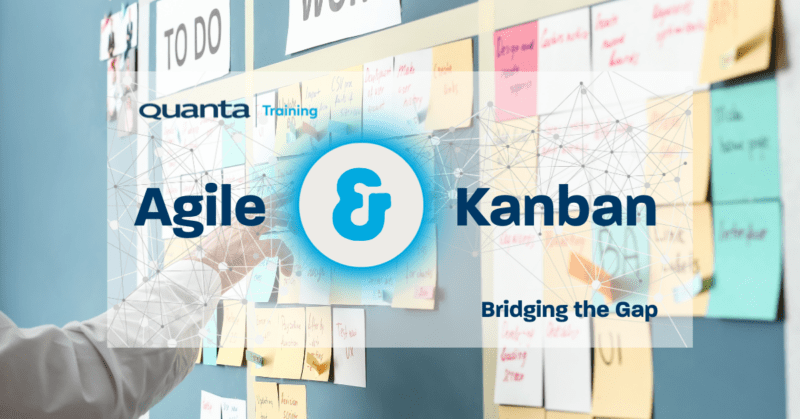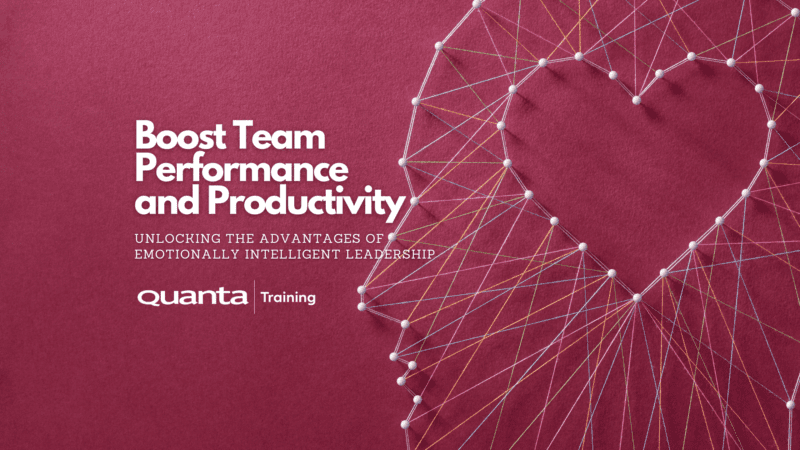Certified ScrumMaster® (CSM®) with Essential Product Owner Bolt-On
Course Code: Q3ClaAgil222


A deeper dive into the world of Agile and Scrum.
For teams about embark on their Scrum choosing the correct training can be difficult. Should you focus on ScrumMaster training - to get the basics right; or Product Owner training so that we are more confident running discovery and have a healthy Product Backlog to give us the best possible start? This 3-day course solves that dilemma by delivering all the learning objectives of a typical Certified ScrumMaster® (CSM®) and the best, most team centric parts of our Product Owner training.Book a Private Event
If you require the content of this event tailored or have around 7 or more people to train it maybe better for you to host a Private Event, please get in touch to discuss this.
Get in touchDescription
Who is this course for
This course is specifically designed for Scrum Teams who are about to enter a Scrum environment. As such it will be valuable to ScrumMasters, Development Team members and Product Owners - as well as to those who may have to support the Scrum Team.
You will learn how to
- Be a servant leader to your team, Product Owner and broader organisation.
- Coach others towards an empirical, inspect and adapt mindset
- Mentor others through Scrum events such as Sprint Planning and Sprint Retrospective
- Facilitate Product Backlog refinement
- Spot common Scrum anti-patterns or Scrum-buts
- Create and manage a product vision that inspires developers and customers alike
- Craft User Stories that allow clear communication between the customer and the development team.
- Create themes and personas that allow you to get to grips with what your customers want from a product.
- Define the minimum viable product (MVP)
- Own and refine the Product Backlog (PBL)
Prerequisites
A willingness to engage with a more Agile way of thinking about work.Benefits for you as an individual
- Attain your Certified ScrumMaster® (CSM®) certification - the most broadly recognised in industry. Please note that, due to accreditation rules, attaining your Certified Scrum Product Owner® (CSPO®) is NOT possible via this course.
- Join the Scrum Alliance community - 2 years membership awarded upon certification.
- Attain 24 Scrum Education Units (SEUs) by the Scrum Alliance towards Certified Scrum Professional® (CSP®) certification.
- Attain 15 Professional Development Units from Project Management Institute if you are Project Management Professional.
- Learn the foundation of Scrum and the scope of the role.
- Engage with Agile practitioners committed to continuous improvement.
Benefits for your organisation
When operating in volatile, uncertain, complex and ambiguous arenas, traditional plan-driven approaches have long been associated with high levels of risk and delay. As the leading Agile framework, Scrum addresses this by fostering a more empirical approach to value generation - releasing benefits earlier, curtailing risk and retaining an ability to respond to evolving customer needs and emergent technologies.
Scrum Theory
- How Scrum is aligned with the values and principles of the Manifesto for Agile Software Development.
- What is Scrum and what is its purpose.
- The five core Scrum values.
- Define Empirical process control and the three pillars of Scrum.
- Product planning in an empirical environment.
- Pitfalls of partially implementing Scrum.
- Benefits of an iterative and incremental approach.
Scrum Events
- The benefits of timeboxing.
- The five events within Scrum, the purpose of each event, and the participants, timing, and maximum recommended timebox.
Scrum Artifacts
- The three artifacts within Scrum and the purpose of each.
- The definition of “Done,” its purpose, and how it evolves over time.
- Why the Scrum Team dedicates time for Product Backlog Refinement.
- Activities that may occur as part of Product Backlog Refinement.
Scrum Roles
- How the Scrum Roles interact with each other to deliver the increment within a Sprint.
- The cross-functional team and the benefits of a cross-functional, self-organizing team.
- Rights and responsibilities of the Product Owner, Development Team and Scrum Master.
- Why the Product Owner is a single person and not a group or a committee.
- How and why the Product Owner maintains authority over the product while working collaboratively with the Development Team and stakeholders.
- The characteristics of the Development Team.
Scrum Events and Artefact Transparency
- How a Scrum Team will inspect and adapt and increase transparency at each of the Scrum events.
- Describe at least three responsibilities for the Development Team, Product Owner, and Scrum Master during Sprint Planning, Daily Scrum, Sprint Review, and Retrospective.
- Why the Sprint Goal does not change during a Sprint.
- What is the outcome of every Sprint.
- Why the increment must be brought to the current definition of ‘Done’ regardless of whether the Product Owner chooses to release the increment.
- The focus of the activities of the Product Owner and Development Team during the two topics of Sprint Planning: the ‘What’ and the ‘How.’
- Practice writing a Sprint Goal.
- How the Daily Scrum differs from a status meeting and why the various constraints exist to support the Development Team.
- The activities that occur during the Sprint Review other than; a demonstration of the increment.
- Potential outcomes for a Sprint Review.
- How to conduct a Sprint Retrospective.
- The essential characteristics of the Product Backlog.
- Attributes of a Product Backlog item.
- Essential characteristics of the Sprint Backlog.
- How the Sprint Backlog can be changed without endangering the Sprint Goal.
- The importance of a strong definition of “Done” and describe at least two risks associated with a weaker definition of “Done.”
- Creating a definition of “Done.”
- Why multiple teams working on the same Product Backlog have a shared and consistent definition of “Done.”
Scrum Master Core Competencies
- Situations in which the Scrum Master could serve the needs of the Scrum Team or organization through facilitation.
- Techniques for facilitating group decision making.
- How facilitating, teaching, mentoring, and coaching are different.
- Techniques that could help resolve a challenge faced by a Scrum Team.
- What is servant-leadership.
- Scenarios where the Scrum Master acts as the servant-leader for the Development Team.
- How to resolve possible violations of Scrum by a Product Owner or stakeholder who is applying excessive time pressure.
- Technical debt and explain the impact of accumulating technical debt.
- Development practices that will help Scrum Teams deliver a high-quality Product Increment and reduce technical debt each Sprint.
- Ways the Scrum Master could support the Product Owner.
- Benefits that arise if a Product Owner participates in the Sprint Retrospective.
- Ways that the Scrum Master assists the Scrum Team with impediments.
- Organizational impediments that can affect Scrum Teams.
- Organizational design change caused by adopting Scrum.
- Why Scrum does not have a project manager and what happens to traditional project management activities.
Tools for Creating a Healthy Product Backlog
- Creating product visions
- How to write meaningful User Stories
- Working with personas
- Employing User Story mapping for discovery, Sprint and release planning
- Options for assigning value to Product Backlog Items
Additional Exam Information
A full and active attendance of the CSM® course will be necessary in order to be registered for the CSM® exam. Unfortunately, due to accreditation rules, there is NOT the option to register for your Certified Scrum Product Owner® (CSPO®) qualification as part of this training.
This is a self-proctored, online exam which can be sat any time after the course has completed.
The CSM test is 50 multiple-choice questions, with a pass mark of 74%. It has a one-hour maximum duration.
All new Scrum Alliance certification holders receive a complimentary two-year membership with their initial certification. Join local user groups and online social networks, gain access to deep discounts on Gatherings, and more.
Pre-Coursework
Prior to starting the course you are required to complete the Scrum Foundations e-learning course, available free of charge at: https://scrumalliance.learnupon.com/store/804338-introduction-to-scrum&€¦;The e-learning course should take around two hours. Failure to do so may invalidate your certification process.
Get Started
Forget trawling through endless course catalogues – Find the training that’s right for you
Learn MoreLatest from our blog
Kanban and Agile: Bridging the Gap
Kanban and Agile: Bridging the Gap Quanta’s Kanban University Certified Trainer Steve Church explores the way in which Agile and…
Read More
How a Ballerina could move into Cybersecurity
Jason Ford, Quanta Cybersecurity and IT Trainer talks about the limitations in Cybersecurity Training courses. Jason discusses a safe and…
Read More
Boost Team Performance and Productivity: Unlocking the Advantages of Emotionally Intelligent Leadership
Quanta People Development and Leadership Trainer, Giles Collins outlines the key elements of Emotionally Intelligent Leadership and how it impacts…
Read More




